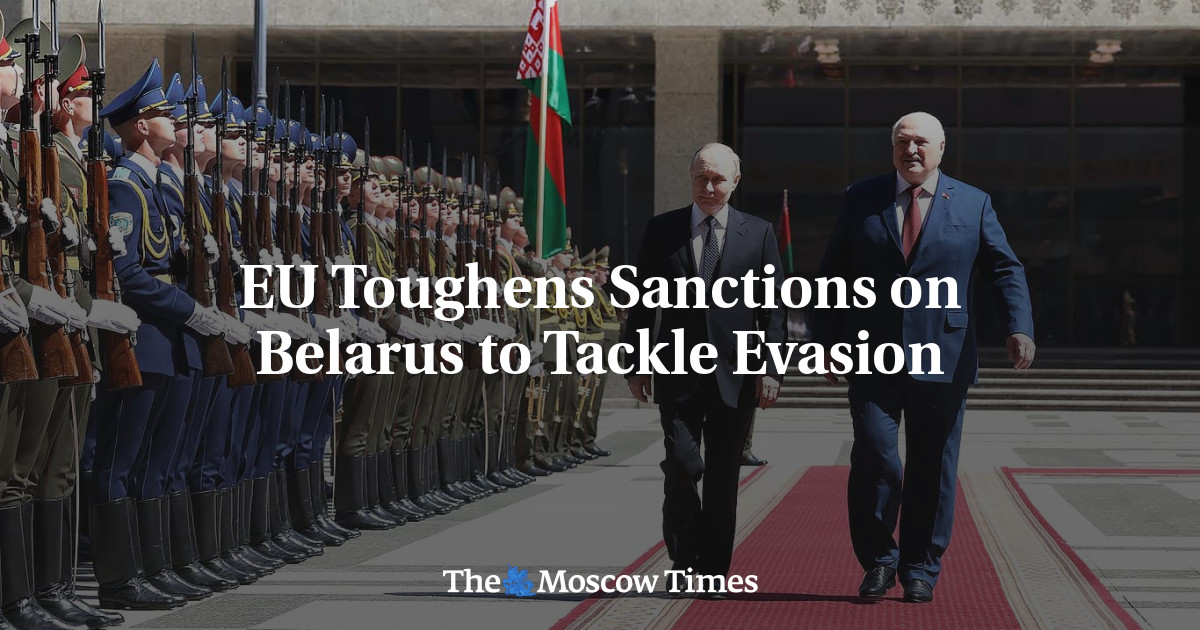
EU countries on Wednesday agreed to new sanctions against Belarus over the Kremlin’s full-scale invasion of Ukraine so that they align more closely with measures targeting Russia and close holes that have allowed Moscow to circumvent restrictions, officials said.
“EU Ambassadors agreed in principle on a new package of sanctions targeting Belarus,” Belgium, which holds the bloc’s rotating presidency, said in a statement.
“This package will strengthen our measures in response to Russia’s invasion of Ukraine, including combating circumvention of sanctions,” it added.
Brussels has gone after the government of Belarusian leader Alexander Lukashenko, the Kremlin’s closest ally, for allowing his country to be used as a staging ground for Russia’s February 2022 invasion of Ukraine.
Bringing sanctions against Minsk more in line with those against Moscow is seen as vital for stemming the flow of banned goods to Russia, including microchips that can be used on the battlefield in Ukraine.
European officials say Belarus has acted as a backdoor to get sanctioned products from the EU into Russia, as they could be officially exported to Belarus before heading further to its neighbor.
“Belarus must no longer serve as a route to circumvent our sanctions against Russia. With this package we increase the pressure on both countries and make our sanctions against Russia even more effective,” EU chief Ursula von der Leyen said on X (formerly Twitter).
The push to strengthen the sanctions on Belarus, which is in a customs union with Russia, was stalled for over a year as efforts to relax restrictions on its lucrative fertilizer exports were blocked by Lithuania.
Some EU states argued that fertilizer exports should be allowed to help alleviate problems with food supplies in developing nations.
But officials in Lithuania argued that third countries had already moved to obtain supplies from elsewhere and that removing restrictions on Belarus would see revenues worth billions of dollars flow to Belarusian authorities.
EU diplomats said no exemptions had been granted for fertilizer exports.
Before Russia’s 2022 invasion of Ukraine, the EU had already targeted Lukashenko’s government with repeated rounds of sanctions over its crackdown on protests.